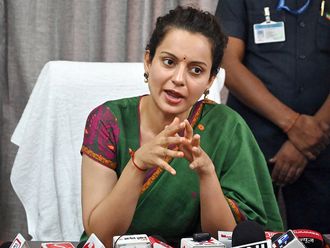I was then home minister Lal Bahadur Shastri's press officer in 1962 when India and China fought a war. Prime Minister Jawaharlal Nehru's disappointment was clear from his remark that he never expected "a communist country attacking a developing country."
His daughter, Indira Gandhi, who later became prime minister, explained the country's reverses as a choice between postponing economic development, which her father thought was the immediate need, and stepping up expenditure on defence, which "we believe could wait for some time more".
This may again be the dilemma before New Delhi, although it is better equipped and better prepared than it was in 1962. The lack of infrastructure on the border, modern equipment, roads and aerodromes, once again tell the same old story of not coming up to the standard which the Chinese claims or probes demand.
There may be something in the argument that the rhythm of 8-9 per cent growth rate may be disturbed if more funds are diverted towards defence. It is equally pertinent to know how much should be allocated for one and how much for the other is never clear even though the threat perception has to be kept in mind.
When China built the Aksai Chin road in Ladakh in 1954, despite knowing that it was Indian territory or at best a disputed one, it should have been clear to New Delhi that the clash over the unsettled borders was bound to come "sooner than later".
Nehru depended on diplomacy and came a cropper. Whether the People's Liberation Army (PLA) has come to the disputed Gilgit-Baltistan area for flood relief work or as a force to stay there is, no doubt, a point of concern. But New Delhi's grievance should be more directed against Islamabad.
Pakistan angle
If Pakistan, whatever its compulsions or considerations, is not opposed to the presence of PLA, India's protest would have little meaning. True, technically, Pakistan Kashmir is part of Jammu and Kashmir which acceded to India in 1947 after the British left. But it is an open secret that India has often discussed agreements which would make the present line of control as an international border.
In 1972, when the Shimla pact was signed, then Pakistan Prime Minister, Zulfikar Ali Bhutto, was made the offer. He reportedly agreed to it, but could not sell it to his colleagues.
No doubt, India has passed a unanimous resolution in parliament to get back the Kashmir under Pakistan. But then parliament has also passed a resolution to secure every bit of Indian territories that China has "occupied". Rhetorical statements may be part of politics but not of well-considered foreign policy.
Even for a settlement on Kashmir, India and Pakistan have to discuss the territorial claim which both countries cherish. The involvement of Kashmiris — a must for any solution — makes things more complicated.
But why should China try and divide the state into the ‘northern part of Pakistan' or ‘India-controlled Kashmir'? This indicates that Beijing has already decided upon the status of Kashmir.
For example, the Chinese Embassy at New Delhi gives visas to residents of Jammu and Kashmir on a paper, stapled with the passport. Does Beijing's Islamabad office follows the same practice? And why should China deny a visa to Lt. Gen. B.S. Jaswal, General Officer Commanding in Chief, Northern Command, because he has been serving in Kashmir?
Beijing's gameplan
Beijing's role is not confined to semantics. It has its own agenda. On top of it, the presence of about 10,000 men of PLA in Gilgit-Baltistan is ominous. Of course, Islamabad is the immediate power to react to it, even though the two countries are close friends.
The various steps China has taken should make things clear to New Delhi. However, it would be naïve to play into the hands of China as India did in 1962. A sense of growing strength has given Beijing a measure of superiority. It is crudely exhibiting it.
Beijing is also an emerging power in Sri Lanka, Bangladesh, Myanmar and Nepal. New Delhi should also reach out to Taiwan, Vietnam and other south Asian countries which are feeling the assertiveness of China.
Beijing should be made to realise that India has accepted China's suzerainty over Tibet, but not the demographic change or the ruthless repression in that territory.
Nehru warned India in 1962 that "It is a little naïve to think that the trouble with China was essentially due to a dispute over some territory. It had deeper reasons. Two of the largest countries in Asia confronted each other over a vast border. They differed in many ways. And the test was as to whether anyone of them would have a more dominating position than the other on the border and in Asia itself."
If India continues to feel the "assertiveness" of China, as Prime Minister Manmohan Singh has said, Beijing would have to do more to win India's trust. Once a Pakistani foreign minister told me that the road to peace from Delhi to Beijing goes through Islamabad. Can Pakistan help?
Kuldip Nayar is a former Indian High Commissioner to the United Kingdom and a former Rajya Sabha member.










